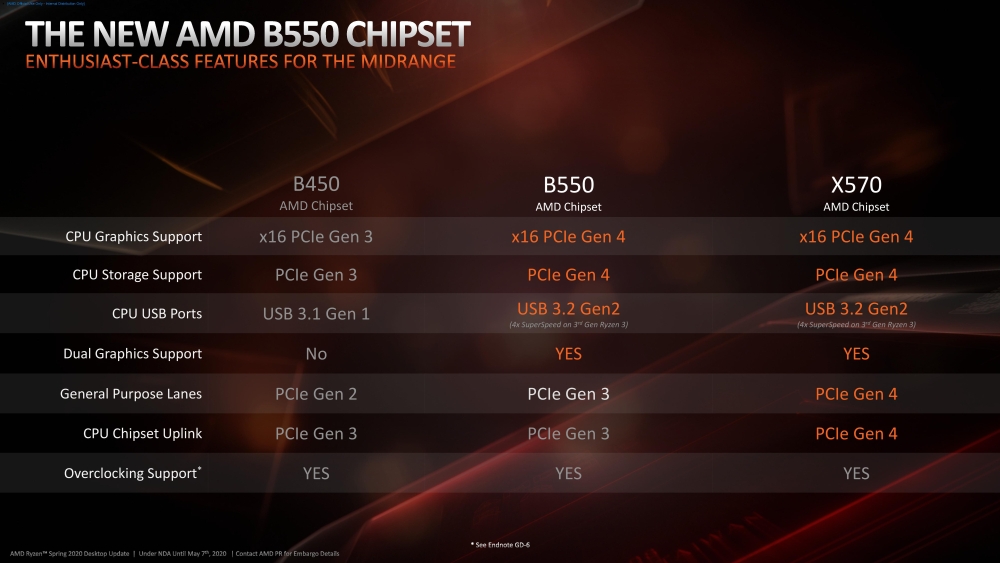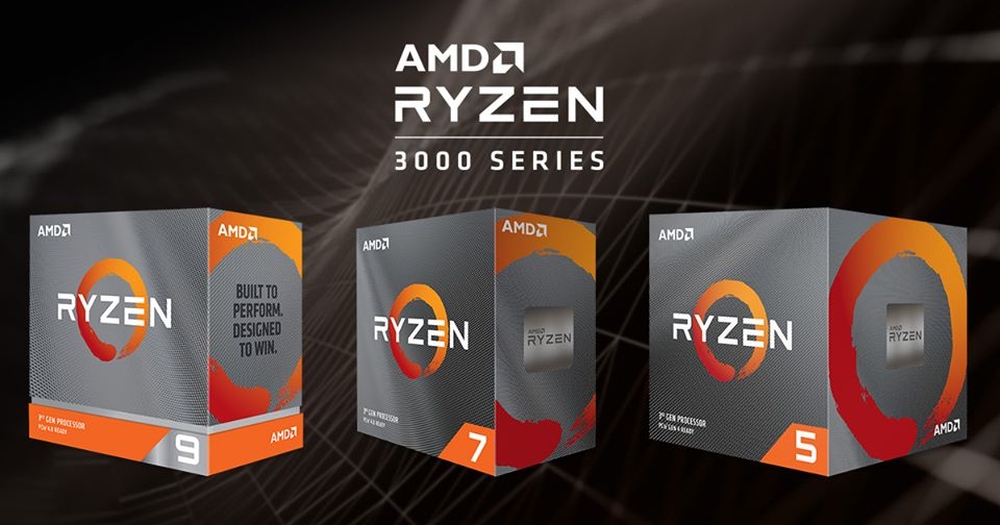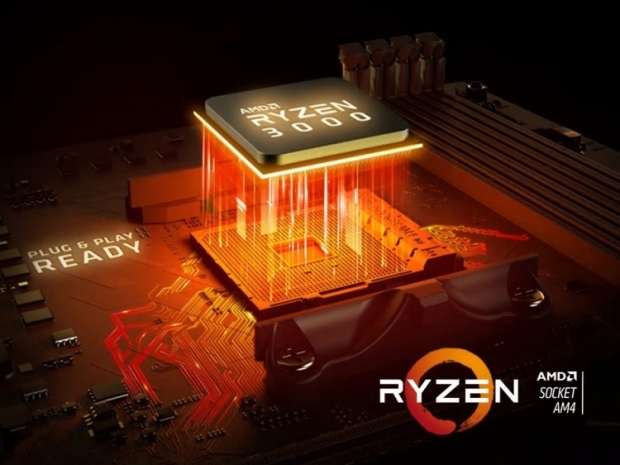Compared to already available Ryzen 3000 series Matisse CPUs, the three new SKUs will offer a slight increase in Boost clocks, while retaining pretty much the same price as the once they meant to replace on the market. Of course, other three "old" SKUs, the Ryzen 5 3600X, 3800X, and the 3900X, will probably get a slight price cut as well.
The Ryzen 9 3900XT is a 12-core/24-thread SKU, with 4x16MB L3 cache, 105W TDP, and works at 3.8GHz base and 4.7GHz Boost clocks, which is +100MHz on the Boost side compared to the Ryzen 9 3900X. The Ryzen 7 3800XT is an 8-core/16-thread SKU, with 2x16MB L3 cache, same 105W TDP, and works at 3.9GHz base and 4.7GHz Boost clocks. This is a +200MHz higher Boost clock compared to the Ryzen 7 3800X.
Last, but definitely not the least as it has a rather attractive US $249 price tag, is the Ryzen 5 3600XT. This is a 6-core/12-thread part, with 2x16MB L3 cache, 95W TDP, and works at 3.8GHz base and 4.5GHz Boost clock, a +100MHz higher Boost compared to the Ryzen 5 3600X.

All three will launch on July 7th, with SEP set at $499 for the Ryzen 9 3800XT, $399 for the Ryzen 7 3800XT, and, as noted, $249 for the Ryzen 5 3600XT.
Bear in mind that only the Ryzen 5 3600XT will be shipped with a boxed cooler Wraith Spire cooler, and for the Ryzen 9 3900XT and Ryzen 7 3800XT, AMD is recommending liquid coolers with at least a 280mm radiator or some more potent air coolers, like the Noctua NH-D15. You can check out the full list of recommended coolers over at AMD's page.
The B550 chipset brings PCIe gen 4 to the masses, and A520 comes later
In addition to launching three new Ryzen 3000 series SKUs, AMD has also announced a few more things, including the availability of the B550 chipset motherboards, as well as the upcoming A520 chipset, which is set to replace the A320 on the market. There are no further details about the A520, but don't expect any miracles as this will be a budget-oriented chipset and we suspect these could launch in August.
The B550 motherboards from various vendors should be hitting retail/e-tail shelves, with prices ranging from $99, all the way up to $300.


StoreMI 2.0 is in the works as well
AMD is also working on a new version of the StoreMI, and as you know, the distribution of the first version, which was pretty much a rebranded Enmotus FuzeDrive software, ended in April 2020. AMD did not reveal a lot of details about the StoreMI 2.0, but did note that we can expect faster boot and game load times, of up to 31 and 13 percent, as well as easier mass storage application, probably by mixing SSD with HDD storage to create similar hybrid storage.
AMD is definitely not slowing down and hopefully, we will see more on both CPU and especially the GPU side.





